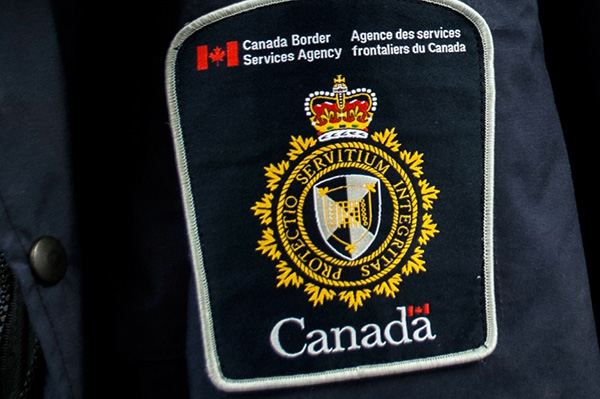The Canada Border Services Agency (CBSA) is cracking down on travellers transiting to Alaska through Canada, by implementing stricter rules as of Friday.
Starting at 12:01 am (PDT) on Friday, July 31st, the CBSA will be increasing measures for all in-transit travellers.
In-transit foreign nationals:
- Must enter Canada at one of the five identified CBSA ports of entry (POE)
- Kingsgate (British Columbia)
- Osoyoos (British Columbia)
- Abbotsford-Huntingdon (British Columbia)
- Coutts (Alberta)
- North Portal (Saskatchewan)
- Will be allowed a reasonable period of stay to carry out the transit
- Will be limited to travel within Canada using the most direct route from the POE to the intended POE of exit, while avoiding all national parks, leisure sites and tourism activities
- Will be required, before entering the U.S., to report to the nearest CBSA POE to confirm their exit from Canada
“In-transit travellers will be issued a vehicle “hang tag” to be attached to their rear view mirror for the duration of their trip to or from Alaska to support compliance while they are in Canada,” said CBSA on Thursday. “The front of the tag will make it clear that the travellers are transiting and include the date they must depart Canada. The back of the tag will remind travellers to comply with all conditions imposed upon entry and the Quarantine and Emergencies Acts and a list of public health and safety measures to follow.”
The measures also apply to foreign nationals using Canada to transit to the U.S. from Alaska.
“However, entry into Canada from Alaska on the northern border is not limited to designated POEs,” clarified CBSA. “Additional measures might be imposed at time of entry by a border services officer (BSO).”
The temporary restriction on all optional or discretionary travel at the Canada-United States border remains in place.
After being admitted into Canada, CBSA said in-transit travellers will be provided with a handout from the Public Health Agency of Canada, clearly starting instructions such as:
- Avoiding contact with others while in transit
- Remaining in the vehicle as much as possible
- Not making any unnecessary stops
- Practicing physical distancing at all times
- Paying at the pump if they need gas
- Using a drive-thru if they need food
- Wearing a suitable mask or face covering while in transit
- Ensuring good hygiene practices if they need to use a rest area
“In-transit travellers are encouraged to use only those services that are open to travellers along the direct route on which they are travelling,” said CBSA. “Travellers who arrive at a non-identified POE for the purpose of transiting to Alaska will be denied entry and advised to go to one of the five identified POEs.”
The CBSA said no matter the person’s reason for travelling, anyone exhibiting signs or symptoms of COVID-19 will not be allowed into Canada.
“Providing false information to a BSO may lead to consequences such as being denied entry and/or banned from returning to Canada.”
Failing to comply with current border restrictions counts as an offence under the Quarantine Act. CBSA said that could lead to fines up to $750,000, and/or imprisonment up to 6 months.
“If a traveller causes a risk of imminent death or serious bodily harm to another person while willfully or recklessly contravening this act or the regulations, they could be liable for up to $1,000,000 in fines, and/or imprisonment of up to 3 years.”







